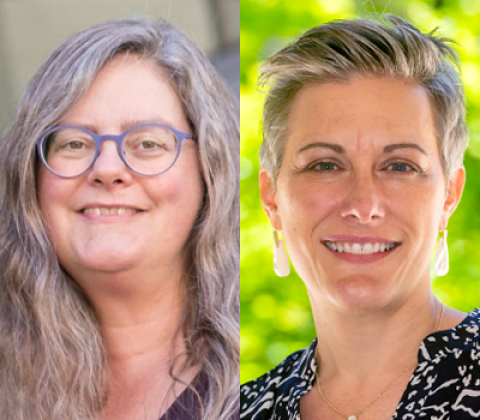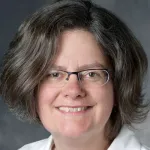Interdisciplinary Initiatives Program Round 11 - 2022
Project Investigators:
Marion Buckwalter, Neurology & Neurological Sciences and Neurosurgery
Sarah Heilshorn, Materials Science & Engineering
Abstract:
Stroke is a leading cause of long-term disability world-wide, and a major consequence of stroke is the doubled risk of new (incident) dementia for at least a decade afterwards. Indeed, about half of all people with Alzheimer’s Disease and all with vascular dementia have ischemic brain disease. Our long-term goal is therefore to develop therapies to prevent and treat ischemia-induced neurodegeneration before it leads to dementia. Previous work in the Buckwalter lab has pinpointed a potentially treatable post-ischemic cascade where stroke leads to chronic inflammation in and around the stroke scar with resultant blood-brain barrier breakdown. This occurs in about half of all stroke survivors, who number 7 million in the US alone. We propose two aims here that will provide proof of concept data to further develop therapies and test them in humans. In Aim 1 we will explore how similar chronic stroke scars are in humans compared to our mouse model. Using state-of-the art non-linear optical microscopy overlaid with conventional confocal imaging, we will define structural, molecular, and cellular similarities. This work will validate the use of mice as a clinically relevant model of human blood-brain barrier leakiness after stroke and identify optimal timing for mouse therapy studies. In Aim 2 we will develop and test a therapy to repair the blood-brain barrier within the stroke scar. Specifically, we will design an injectable gel that delivers a gene therapy to overexpress a protein previously identified as critical for proper barrier function after stroke. In this new interdisciplinary collaboration, the Buckwalter and Heilshorn labs will pool their resources and expertise and co-mentor a postdoctoral fellow. Dr. Buckwalter is a Professor of Neurology and Neurological Sciences, and Neurosurgery. She is a clinician scientist who does clinical and translational research and brings expertise on post-stroke inflammation and its consequences. Dr. Heilshorn is a Professor of Materials Science and Engineering and an expert in the design and characterization of biomaterials and brings expertise in nonlinear optical microscopy and injectable, drug-delivery systems. This collaborative, interdisciplinary project has the potential to significantly improve patient well-being and longterm cognitive health following stroke.



